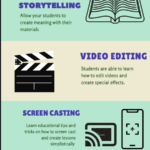I was fortunate enough to part take in this engaging and interactive collection of individuals who are within the educational community around victoria. Students, faculty, and teachers from the district gathered and discussed interactive questions regarding education. The discussions I was a part of discussed several ways to survive your practicum, different assessment tools, and ways of integrating inquiry-based learning in classrooms. I found it rather intimidating to speak up and comment on others’ discussions because of my placement in the program, and due to the tendencies of online discussion. However, I gathered some key take aways from teachers and faculty members that will help me in my future of education.
Surviving your first practicum: Several teachers, district members, and students gave great tips to prepare for our own practicums in the future.
- Know the school, know the teacher
- Communication with mentor teacher (different style is okay, just clear communication is essential)
- Relationship with the students, get to know the children, and allow them to know you. Engaging, a way for them to get to know them. Activities such as (True false), favorite artifact, video.
- Make sure you are still the teacher, you’re not friends, but still allow them to get to know you, as a trusted adult.
- Have Fun! This is the longest job interview that you do. Principles will ask about you and how you are doing.
- Become a part of the school culture
- Whatever you can do to have the most positive impression at the school.
- Coach basketball, volleyball, help with the play, supervise a dance. Help with the track team.
- Get to know the students on their own, IEPS, learning abilities, social skills.
- Keep a daybook
- How you feel as a teacher, the students pick up on that, so manage your emotions.
- Be real, but in a healthy way.
- Fail better, such a vulnerable activity, and enjoy the process.
- Teaching is unpredictable.
- Implement inquiry-based lesson plans. Working into the routines that are already set up and being practical.
- Modeling and clear instructions.
And some key points from the assessment strategies breakout room:
- Need to explain what each grade means.
- Develop your own assessment
- Proficiency is what the goal needs to be
- Where is their best and most relevant assessment?
- What will extending be
- Emerging is an initial understanding
- Consistency
- What are you doing with grading in the classroom?
- 5/10 emerging, 7/10: developing, 9/10: Proficient. 10/10: extending.
- don’t show where students are on the proficiency scale too soon.
Overall, this collaboration of smart and engaging individuals was a wonderful addition to my week as it showed me inside information, and gave me exceptional resources ill take with me to my future classroom.



